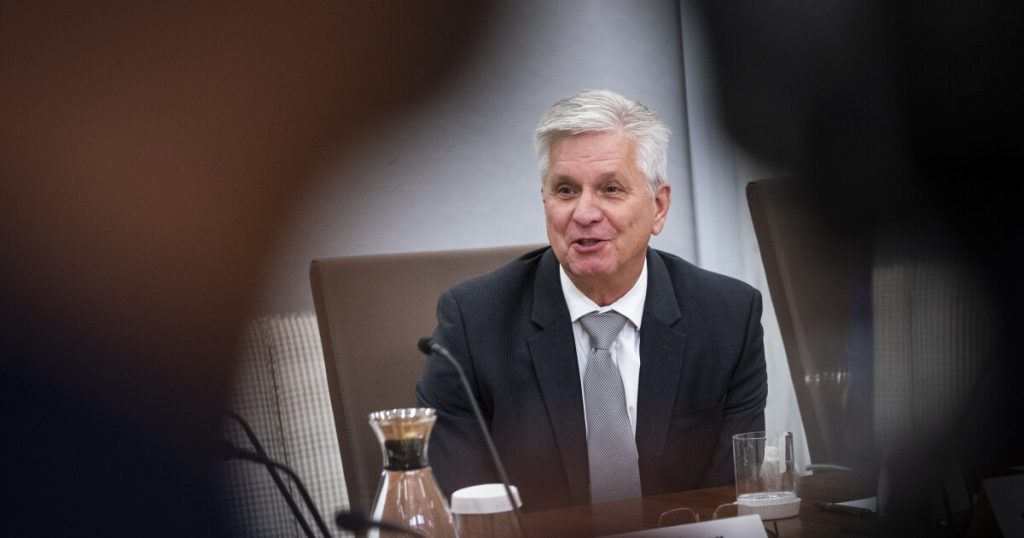Al Drago/Bloomberg
Despite the
Gov. Christopher Waller said the central bank likely won’t have a clear enough view on the trajectory of the economy until after the
“I don’t think you’re going to see enough happen in the real data in the next couple of months, until you get past July, ” Waller told Bloomberg TV and Radio on Thursday morning. “When you get to the second half of the year, we’ll start having better ideas of what’s going to happen with the tariff world that the administration is considering, and by then you’ll start seeing more in the form of tariff price pass through and also stuff on the real side.”
Waller has been among the more dovish — meaning inclined to lower rates — members of the Federal Open Market Committee this year. Shortly after the Fed put rate cuts on hold in January, Waller suggested the
His latest comments put him in line with other Fed officials who have spoken publicly since Trump announced sweeping tariff proposals on April 2. Those officials have said the policies present too much uncertainty to adjust monetary policy.
Waller said some impacts of higher tariffs would likely show up in economic data before July. He pointed to the new 10% global tariff that remains in place as something to which companies are already having to adjust.
Based on conversations with private-sector executives, Waller said he believes this new levy will have a minimal impact on prices, surmising that some portion of the cost will be eaten by importers, some by exporters and the remainder by the end buyers.
However, he cautioned, this arrangement could lead businesses to cut costs elsewhere, namely by reducing staffing.
“The easiest thing to do when firms have 65 to 70% of their cost in labor, is to start shedding some labor,” Waller said. “So, you might see layoffs start to happen about the same time you start seeing prices going up.”
A simultaneous rise in prices and unemployment would challenge both sides of the Fed’s dual mandate, raising questions about
“Even if it was fairly large, you would see a one-time price level effect, the demand slowdown would offset some of that,” he said. “As consumers back off, employment goes down, unemployment rises … financial wealth declines, you will see demand effects from that that will put downward pressure on inflation. So it may not be as high as people think.”
Still, Waller acknowledged that
“It’s going to take some courage to stare down these tariff increases in prices with the belief that they are transitory. I’m not going to lie, we all have 2021 in our minds when we think about how we go forward,” he said. “But, you know, the question is, what are the things that will cause this inflation to persist through the initial tariff increases, and I just have a hard time seeing exactly what that would be.”
During the Bloomberg interview, Waller said tariffs were a legitimate way for the government to increase revenues, something he said was necessary to bring down the federal debt.
“Given the fiscal situation we’re in, we need to get some better control of the budget deficit, and that means some combination of taxes and spending. It’s just an argument of what taxes do you want to have to raise?” Waller said. “Nobody likes taxes. I don’t like taxes. But if you’re going to get … our fiscal situation under control, you’re going to have to have some tax revenue. And there’s no obvious reason why tariffs should have to be off the table, per se.”
Asked whether he believed his view on the outlook for monetary policy contradicts that of other FOMC members — namely Fed Chair Jerome Powell — Waller said he would leave it up to others to make that distinction. But, he added, if there is daylight between himself and others, that is part of what makes the group of policymakers strong.
“That’s the beauty of not having group-think,” he said. “People have different views about how the economy is evolving and how policies should be done. I think that’s actually a healthy thing.”

